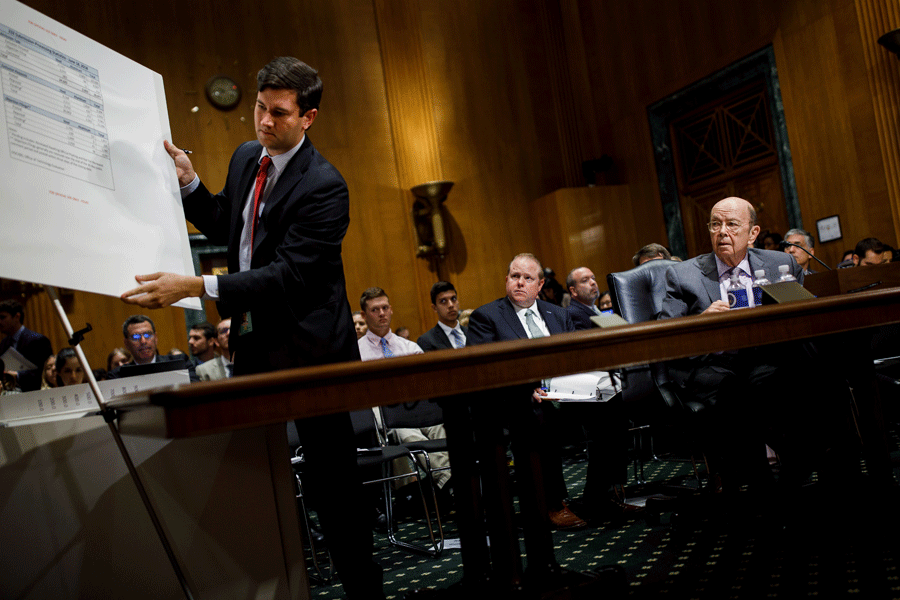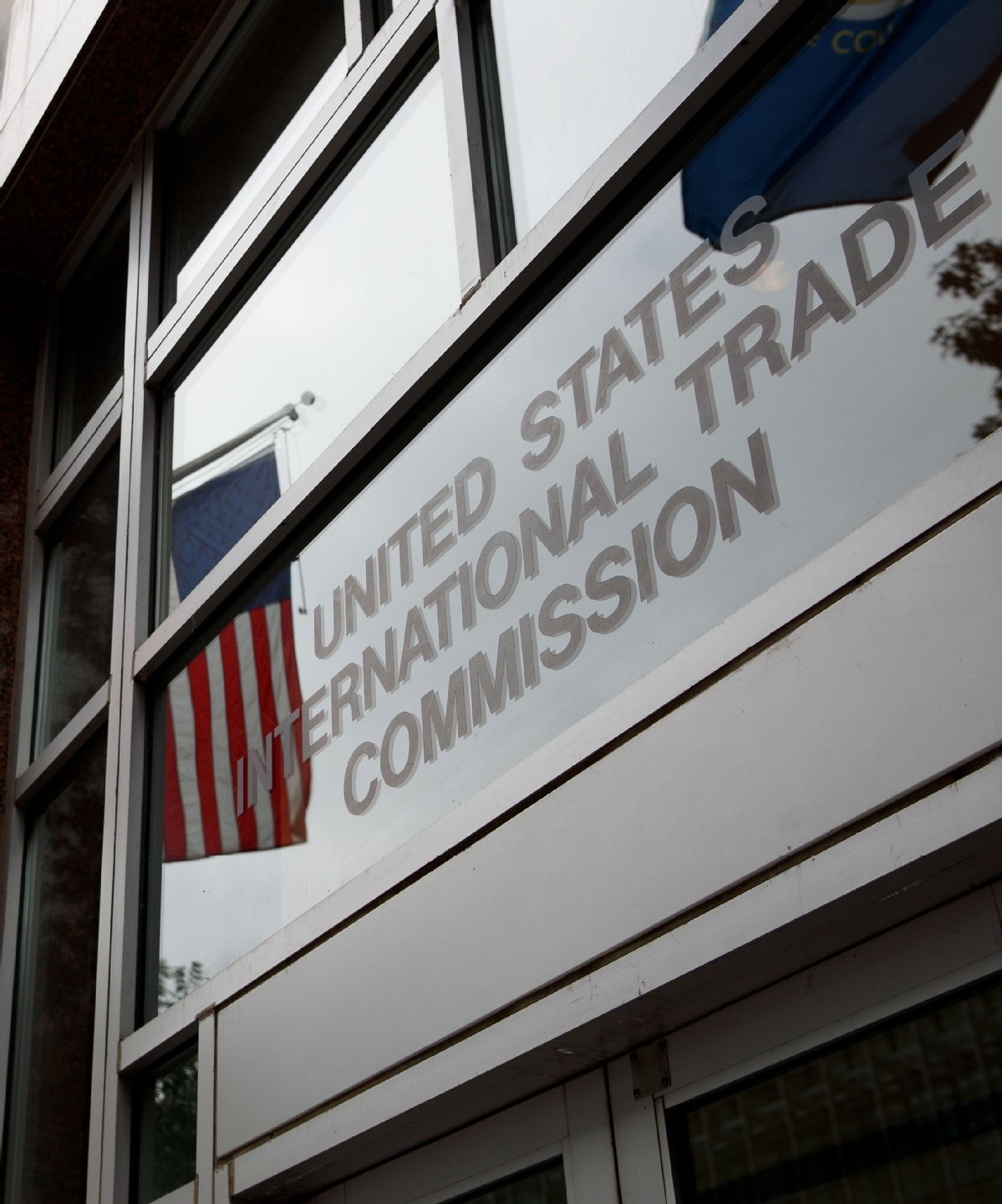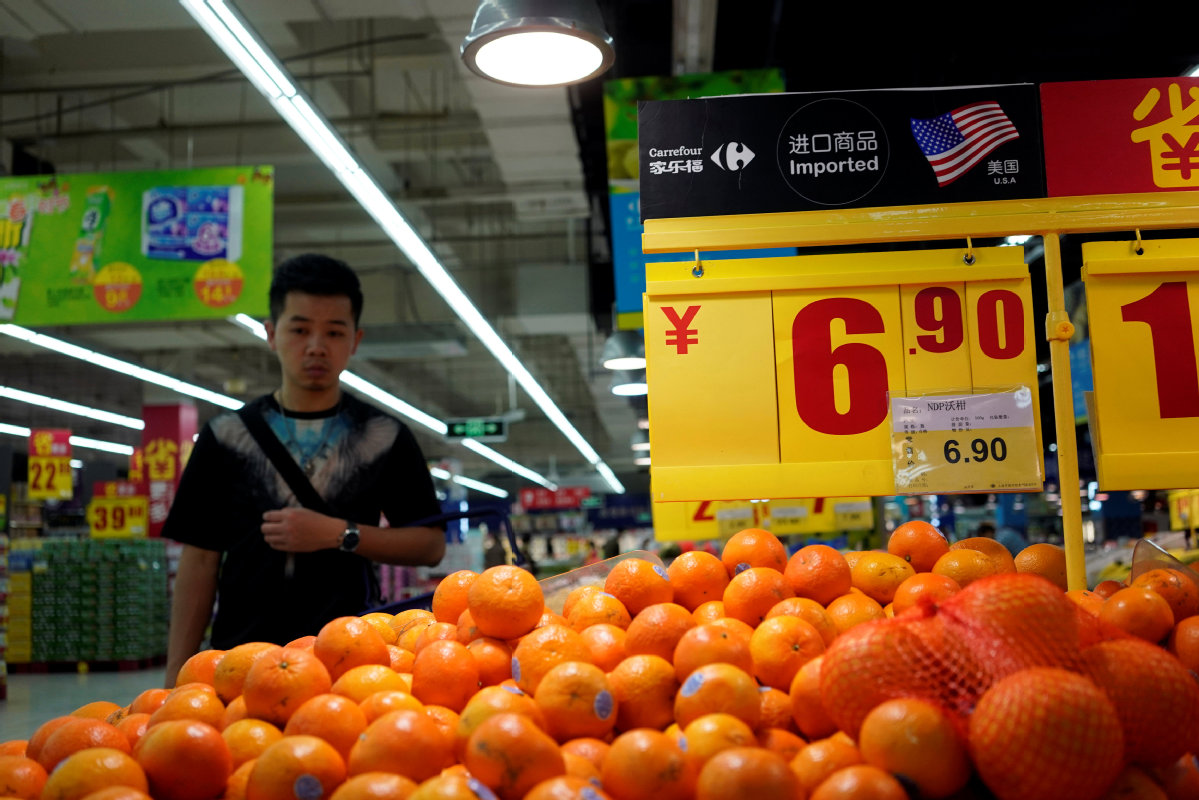
Privacy statement: Your privacy is very important to Us. Our company promises not to disclose your personal information to any external company with out your explicit permission.
Liyang Paper Products Co., Ltd.
Washington hearings told of risk to children, threat to supply chains
Each of those who testified told a different story, but with a similar theme.
They said it was simply impossible to shift manufacturing back to the United States; they had invested time and resources in developing a supply chain using Chinese capacity; and imposing tariffs would not advance the goals of US President Donald Trump's administration.
The US business executives were testifying last week at hearings on the proposed 25 percent tariffs the US says it will impose on $200 billion worth of Chinese imports.
At the hearings held by the US Trade Representative's Office, which were due to conclude on Monday, those who testified presented a long list of cost-effective products sourced from China that would be off-limits to numerous US consumers if the duties took effect.
One witness after another pleaded for the Trump administration not to raise tariffs on more Chinese goods, saying that the escalating trade war between the world's two largest economies would risk the safety of US children and destroy many domestic businesses while disrupting supply chains.
"We strongly oppose the proposed tariffs, which will disrupt business models and cause lasting economic harm to American sports companies and to millions of American consumers who look to play sports and be active every day," said Tom Cove, president and CEO of the Sports & Fitness Industry Association.

Cove was one of at least 360 industrial company representatives and business executives who descended on Washington to attend the hearings from Aug 20 to Monday. The demand to testify was so high that the number of days scheduled for the hearings had to be doubled.
By Thursday, the US had imposed two rounds of 25 percent tariffs on $50 billion of Chinese goods and was threatening to levy the same tariffs on $200 billion worth of additional Chinese goods, ranging from car tires to baseball gloves.
At the hearings at the US International Trade Commission, witnesses have five minutes to present their case before answering questions from a government panel that includes the US Trade Representative Office, the state, labor, homeland security and commerce departments and some other organizations.
Cove said his association, which has more than 300 member companies, has taken steps to diversify sourcing.
"But it can take years to find alternative production options, train the workforce, develop necessary infrastructure and build, or retrofit, a manufacturing facility," he testified. "China remains a vital and not easily replaceable link in our industry's supply chain."
Claims refuted
Ross Bishop, president of Bright-Line Bags in California, whose products include those for airline pilots and industry professionals, said, "The Chinese actually do make a better product than the US companies I've worked with, and they do it for a lot less money."
In his testimony, Bishop refuted some claims made by the Trump administration to justify its proposed punitive tariffs on Chinese imports, including the bags produced by his company.
"The claim is that these tariffs are necessary in the name of national security. In this category, that premise is false. Gear bags are not a threat to national security," he testified. "This is a political game being played, with my company as the game piece."
He said it was also not true that the tariffs would lead to consumers buying US products, because they could find bags at about the same price made elsewhere.
Lisa Scheller, president of Silberline Manufacturing, headquartered in Pennsylvania, echoed Bishop in defending China as an indispensable production source for US businesses. Siberline is a leading manufacturer of aluminum pigments for paints and coatings.
Scheller said that when it became apparent that her company's supply source from the US was at risk, she searched companies on five continents for the best powder.
"We rigorously tested all these (samples) in our labs and in production. We found that the Chinese powder performed best," she testified. "They have their own patented technology, and produce a highly engineered, quality product."

US companies at the hearings have tried every possible option to be granted tariff relief.
Joseph Cohen, CEO of Snow Joe, a home products manufacturer, asked for electric pressure washers, air compressors and other products made in China for his company to be excluded from the tariffs.
He said the company was not aware of any instances of Chinese intellectual property theft, a longstanding accusation cited by the US administration to increase trade tensions with China.
Russ Torres, CEO of Graco Children's Products, whose company in May earned an exemption from 25 percent tariffs for its child car seats, on Thursday asked for some "legally required child safety products" to be excluded from the new list of tariffs.
Graco is one of the largest manufacturers of child products globally and imports heavily from China. Torres said higher prices as a result of the proposed tariffs may force many US families to make harder choices between tight budgets and ensuring their children's safety.
"For example, parents may be tempted to turn to secondhand car seats that may have outdated or expired safety features," he testified. Chinese businesses and industries threatened by the specter of the looming tariffs also voiced grave concern at the hearings.
At least 10 witnesses, including business executives, trade association chiefs and lawyers, gave evidence last week, representing the chemical, textile, wood, food and home appliance sectors.
Last year, at least 36 percent of textile and apparel products sold in the US were imported from China, Wang Yu, vice-chairman of the China Chamber of Commerce for Imports and Exports of Textiles, said at the hearing on Thursday, citing US Department of Commerce statistics.
The list of tariffs now covers 1,019 Chinese products totaling $7.4 billion in value, Wang said.
While a stable trade partnership benefits both countries, if the proposed tariffs are levied, they could make US retailers and distributors short of stock, less competitive and loss-making, which would eventually lead to thousands of layoffs, Wang said.
James Newport, general manager of a chemical manufacturing factory being planned in Louisiana with investment from the Wanhua Group, a chemical company headquartered in Shandong province, testified that construction of the $1.2 billion plant might be jeopardized by the proposed tariffs.
It would create well over 1,200 US jobs, and "the facility reflects a primary goal of the administration in terms of bringing offshore manufacturing jobs back to the US," he said.

Little difference
Only a handful of products were removed from duties after hearings on the first two rounds of tariffs.
Gary Hufbauer, a senior fellow and trade expert at the Peterson Institute for International Economics in Washington, said the appeals and complaints voiced over the proposed tariffs would probably make little difference to the Trump administration.
"I expect financial turmoil and a slowing of world economic growth" following escalating tariffs, Hufbauer told China Daily.
Jon Taylor, a professor of political science at the University of St Thomas in Houston, said he wanted to be optimistic about the hearings.
"But Trump does not appear to care about their concerns, because he believes that their short-term pain will result in long-term gain," Taylor said. "Simply put, the complaints to the USTR will fall on deaf ears. Sadly, this means that the tariffs are not going to stop anytime soon."
David Dollar, senior fellow at the John L. Thornton China Center at the Brookings Institution, said he believed at least three-quarters of those who had testified so far and would do so on Monday are opposed to the tariffs.
Most of the products proposed for tariffs by the Trump administration are materials and parts that US companies use to be more competitive, said Dollar, a former US Treasury economic and financial emissary to China.
"So taxing them will hurt US firms and consumers. If the US proceeds with the tariffs on $200 billion (worth of goods) in September, and China retaliates with tariffs on $60 billion from the US, then about half of total trade between the two big partners will be seriously distorted," he said.
Ying Wang in Washington contributed to this story.
Liyang Paper Products Co., ltd is a factory and trade company located in Dongguan, China. Specialized in producing gift paper packaging, such as Gift Box,Paper Box, Paper Bag, Book Printing, Notebook, Folder, jewelry boxes, paper tags, jewelry tags,sticker,Envelope, etc.
Privacy statement: Your privacy is very important to Us. Our company promises not to disclose your personal information to any external company with out your explicit permission.

Fill in more information so that we can get in touch with you faster
Privacy statement: Your privacy is very important to Us. Our company promises not to disclose your personal information to any external company with out your explicit permission.